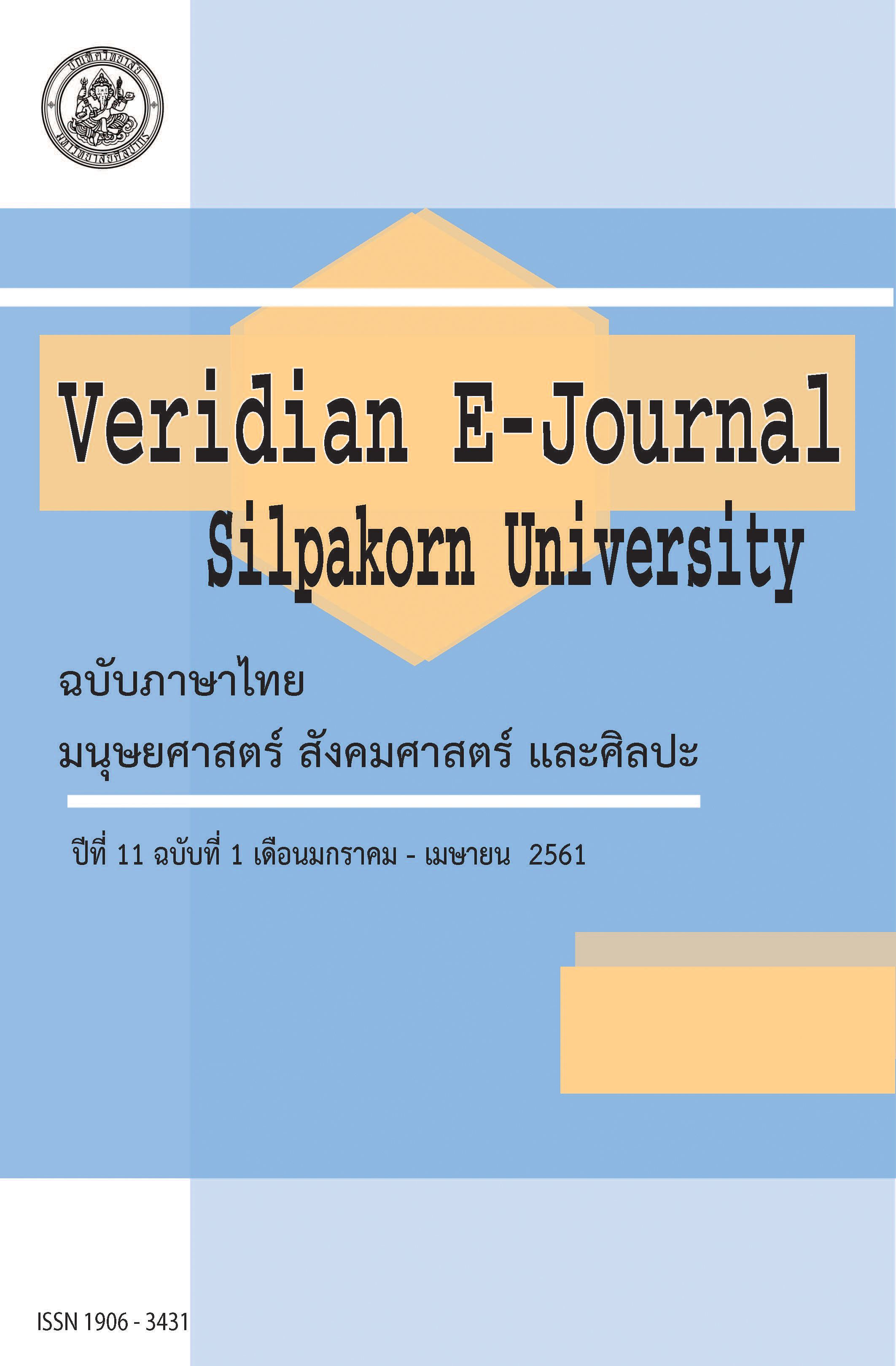การประเมินหลักสูตรศึกษาศาสตรมหาบัณฑิต แขนงวิชาการศึกษานอกระบบ และการศึกษาตามอัธยาศัย (The Evaluation of the Master of the Education Program in Non-Formal and Informal Education)
Main Article Content
Abstract
การวิจัยครั้งนี้มีวัตถุประสงค์ 1) เพื่อประเมินหลักสูตรศึกษาศาสตรมหาบัณฑิต แขนงวิชาการศึกษานอกระบบและการศึกษาตามอัธยาศัย 2) เพื่อปรับปรุงหลักสูตรศึกษาศาสตรมหาบัณฑิตแขนงวิชาการศึกษานอกระบบและการศึกษาตามอัธยาศัย กลุ่มตัวอย่าง ได้แก่ นักศึกษา บัณฑิต ผู้บังคับบัญชาหรือผู้ใช้บัณฑิต และอาจารย์ประจำหลักสูตร จำนวน 65 คน เครื่องมือที่ใช้ในการวิจัย ได้แก่ แบบสอบถาม และแนวการสนทนากลุ่ม สถิติที่ใช้ในการวิเคราะห์ข้อมูล ได้แก่ ความถี่ ร้อยละ ค่าเฉลี่ย และส่วนเบี่ยงเบนมาตรฐาน
ผลการวิจัยพบว่า 1) นักศึกษา บัณฑิต ผู้บังคับบัญชาและอาจารย์ประจำหลักสูตร มีความคิดเห็นต่อหลักสูตรในภาพรวมมีความเหมาะสมในระดับมากที่สุดและผ่านเกณฑ์การประเมินทุกด้าน ได้แก่ด้านบริบทหลักสูตร ด้านปัจจัยเบื้องต้น ด้านกระบวนการของหลักสูตรและด้านผลผลิตของหลักสูตร 2) ผลการปรับปรุงหลักสูตรจากการสนทนากลุ่มของผู้ทรงคุณวุฒิ พบว่า หลักสูตรศึกษาศาสตรมหาบัณฑิต แขนงวิชาการศึกษานอกระบบและการศึกษาตามอัธยาศัย ควรปรับปรุงหลักสูตร เป็นหลักสูตรการศึกษาตลอดชีวิต เพื่อให้สอดคล้องกับบริบททางการจัดการศึกษาในปัจจุบัน ที่มุ่งจัดการศึกษาตลอดชีวิตแก่ประชาชนให้มีความรู้ความสามารถ และเพื่อให้บัณฑิตที่จบการศึกษา สามารถนำความรู้ไปใช้ประโยชน์ได้อย่างเหมาะสม โดยในการปรับปรุงให้ปรับปรุงให้เป็นหลักสูตรการศึกษาตลอดชีวิต ทั้งด้านบริบท ปัจจัยเบื้องต้น กระบวนการ และผลผลิต
The purpose of this study were 1) to evaluate the curriculum of the Master of Education program in Non-formal and Informal Education 2) To improve the Master of Education Program in Non-formal and Informal Education. The sample consisted of 65 graduate students, supervisors or graduate users and lecturers. The instruments used in this research were questionnaires and group discussion. Statistics used for data analysis were frequency, percentage, mean and standard deviation.
The research findings were as follows:
1) student, graduates, supervisors, and lecturers of the curriculum have the highest level of overall feedback and are assessed on all aspects in the context of the curriculum input of the curriculum, process of course and course output.
2) The improvement of the curriculum by the group of experts found that the curriculum should improve the curriculum as a lifelong education in accordance with the current educational context that aims to provide lifelong education for the people to have the knowledge and ability to graduate. Graduates are able to apply the knowledge appropriately through the improvement of their lifelong learning program, both in terms of context, factors, process and productivity.

